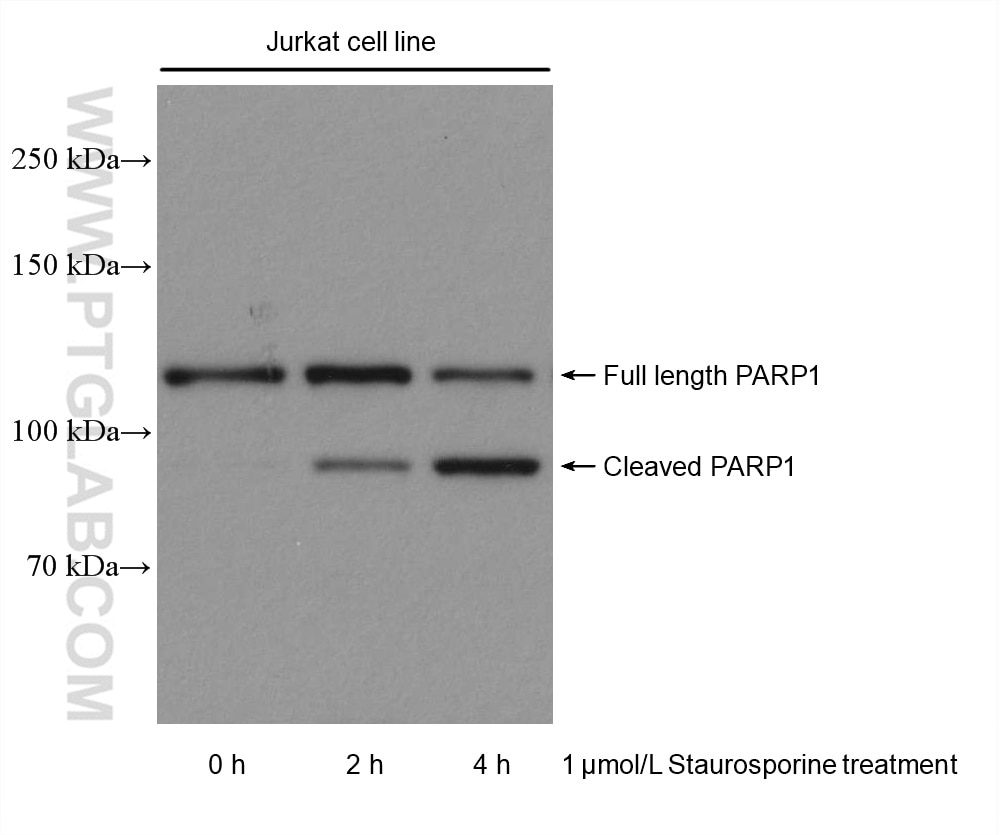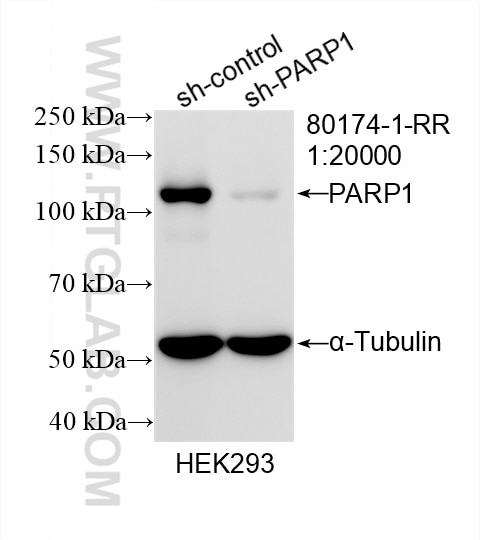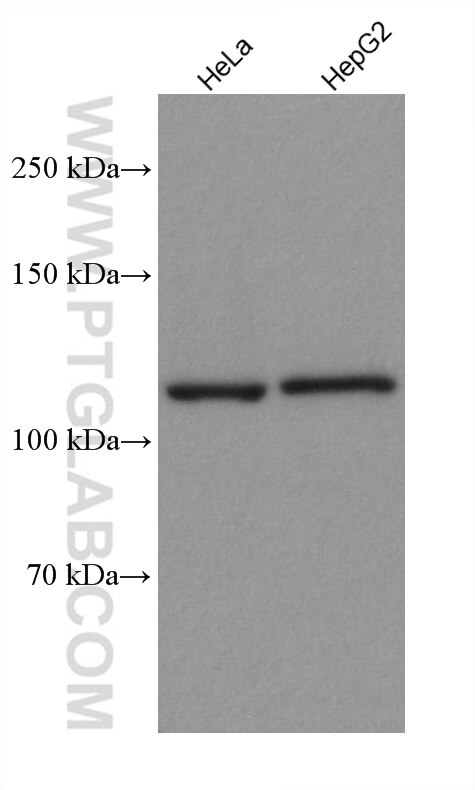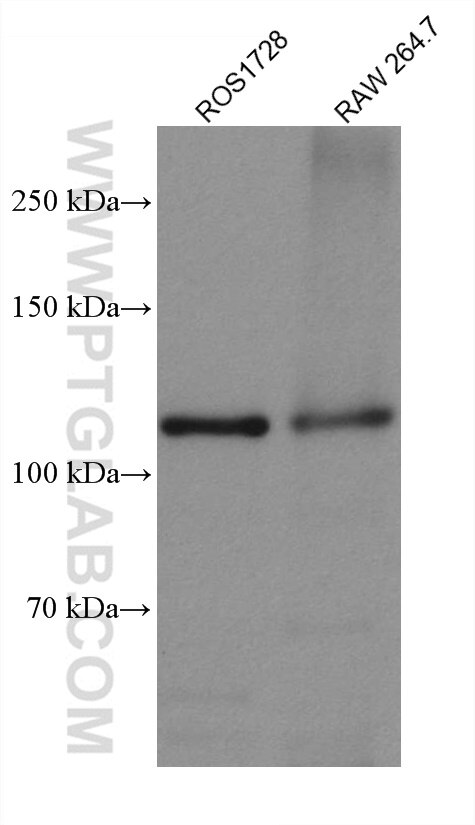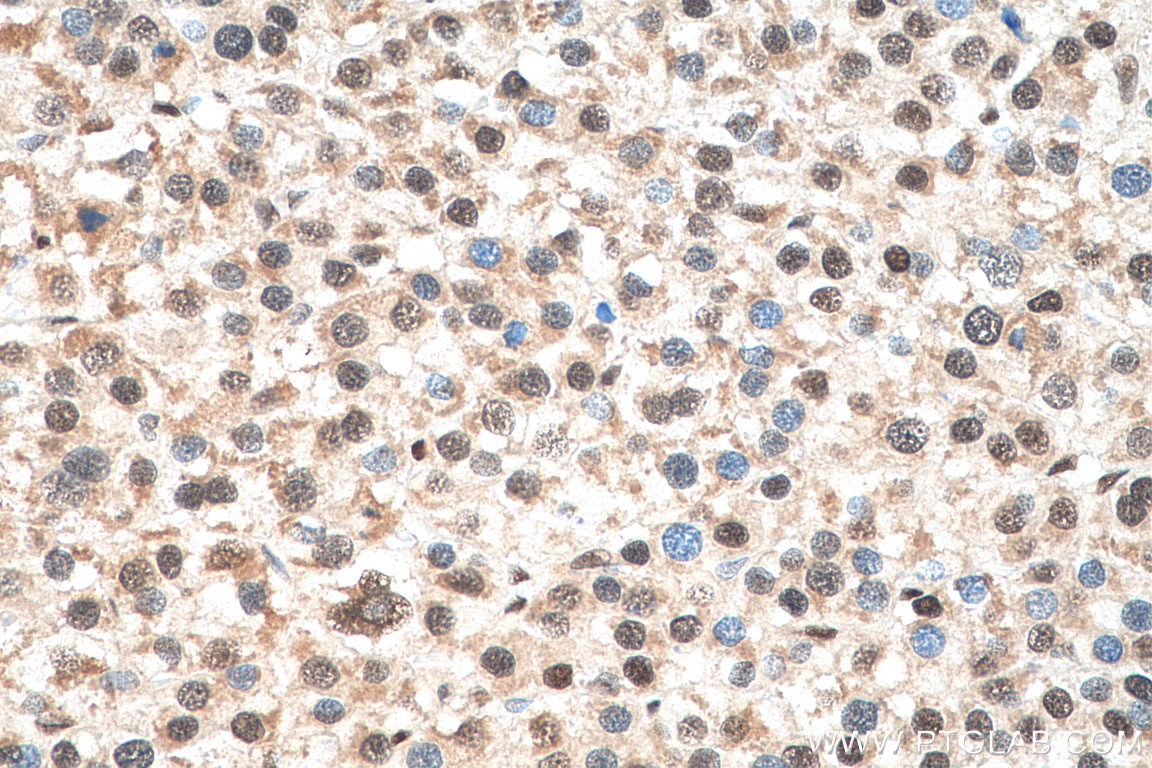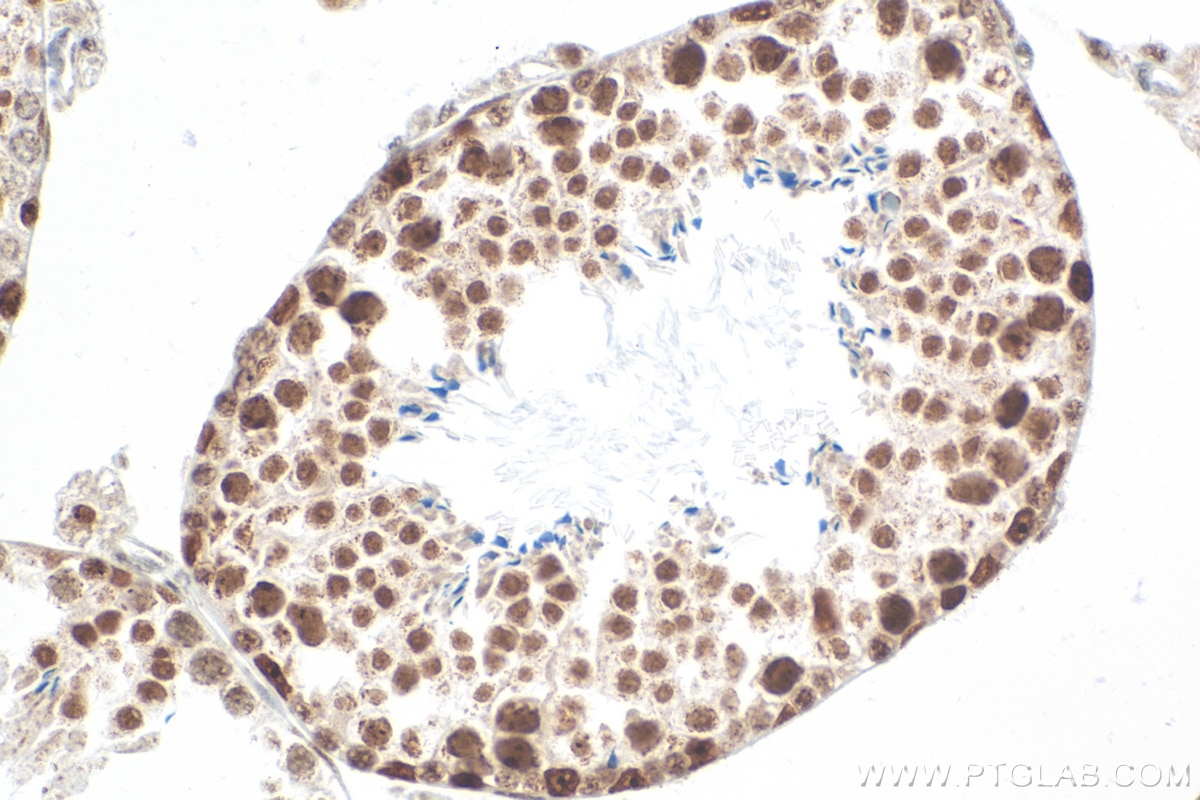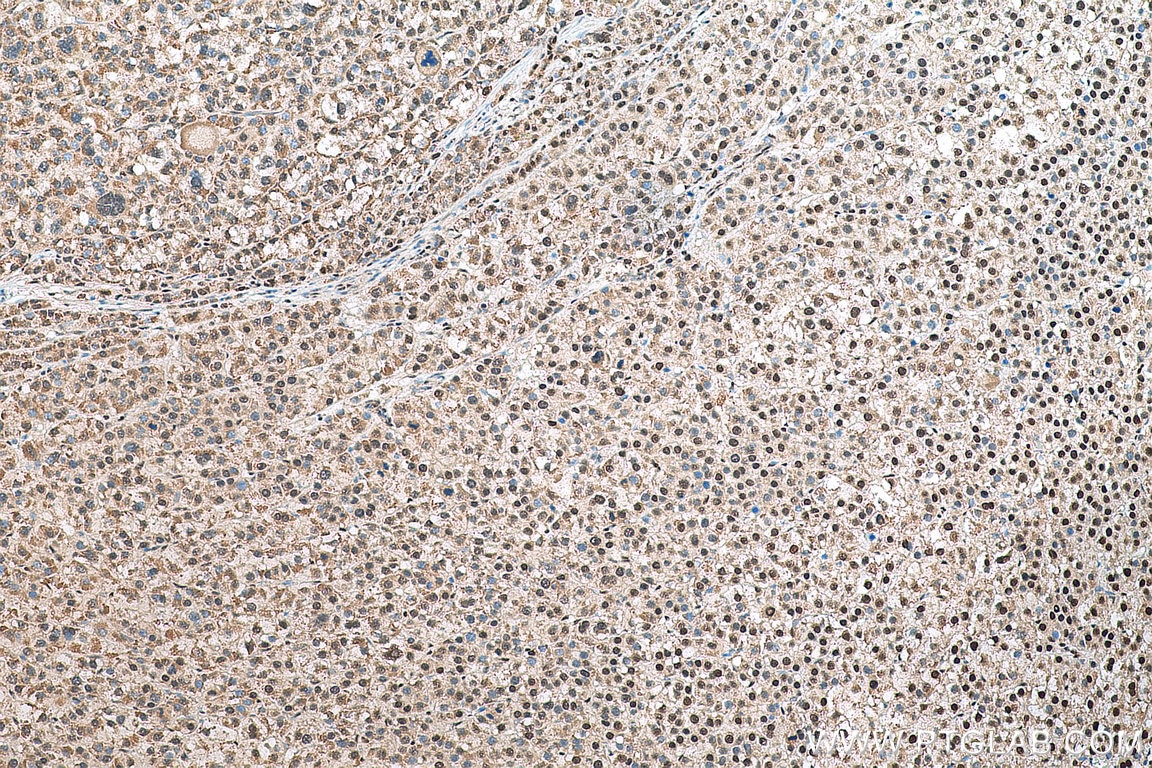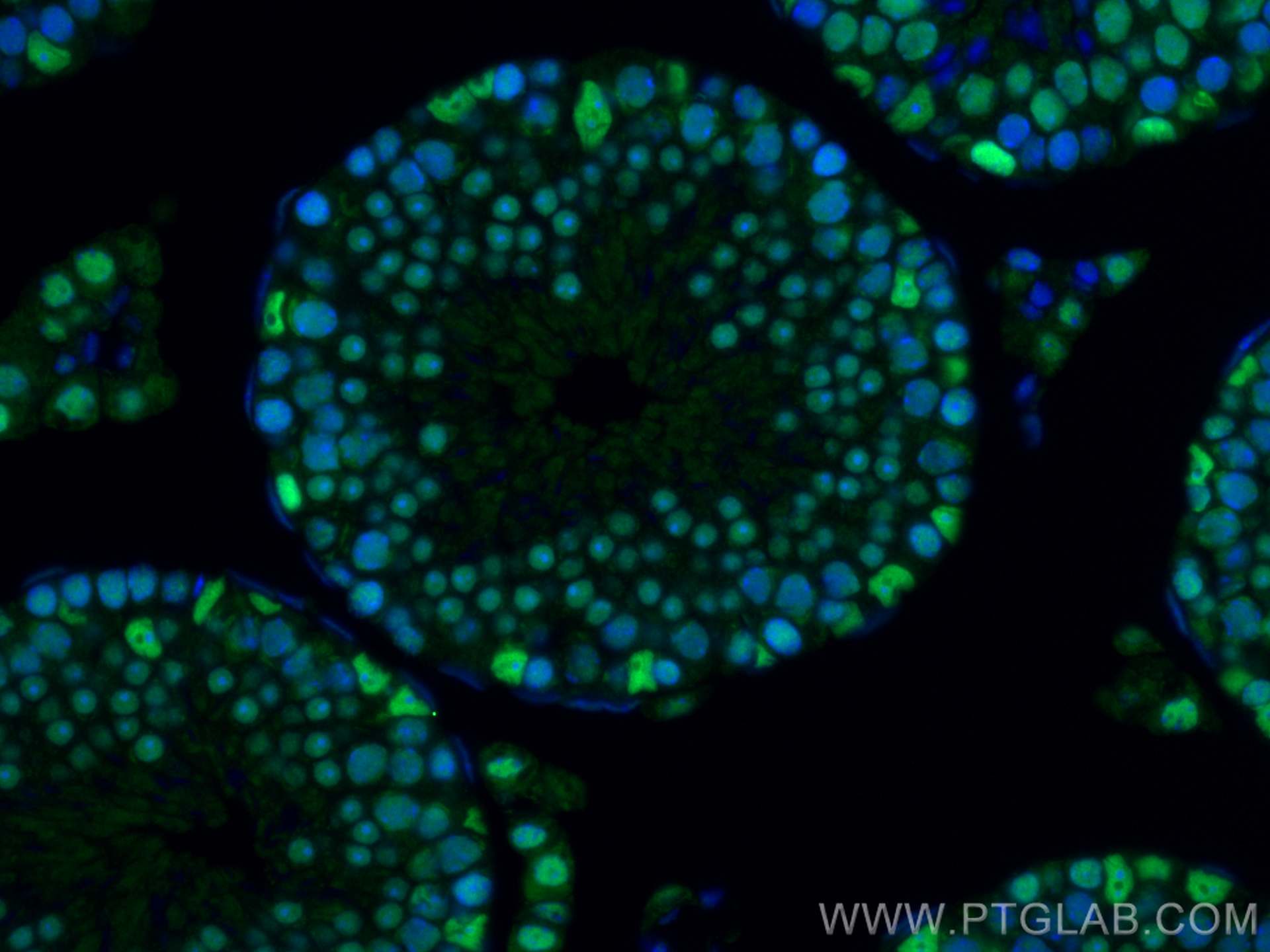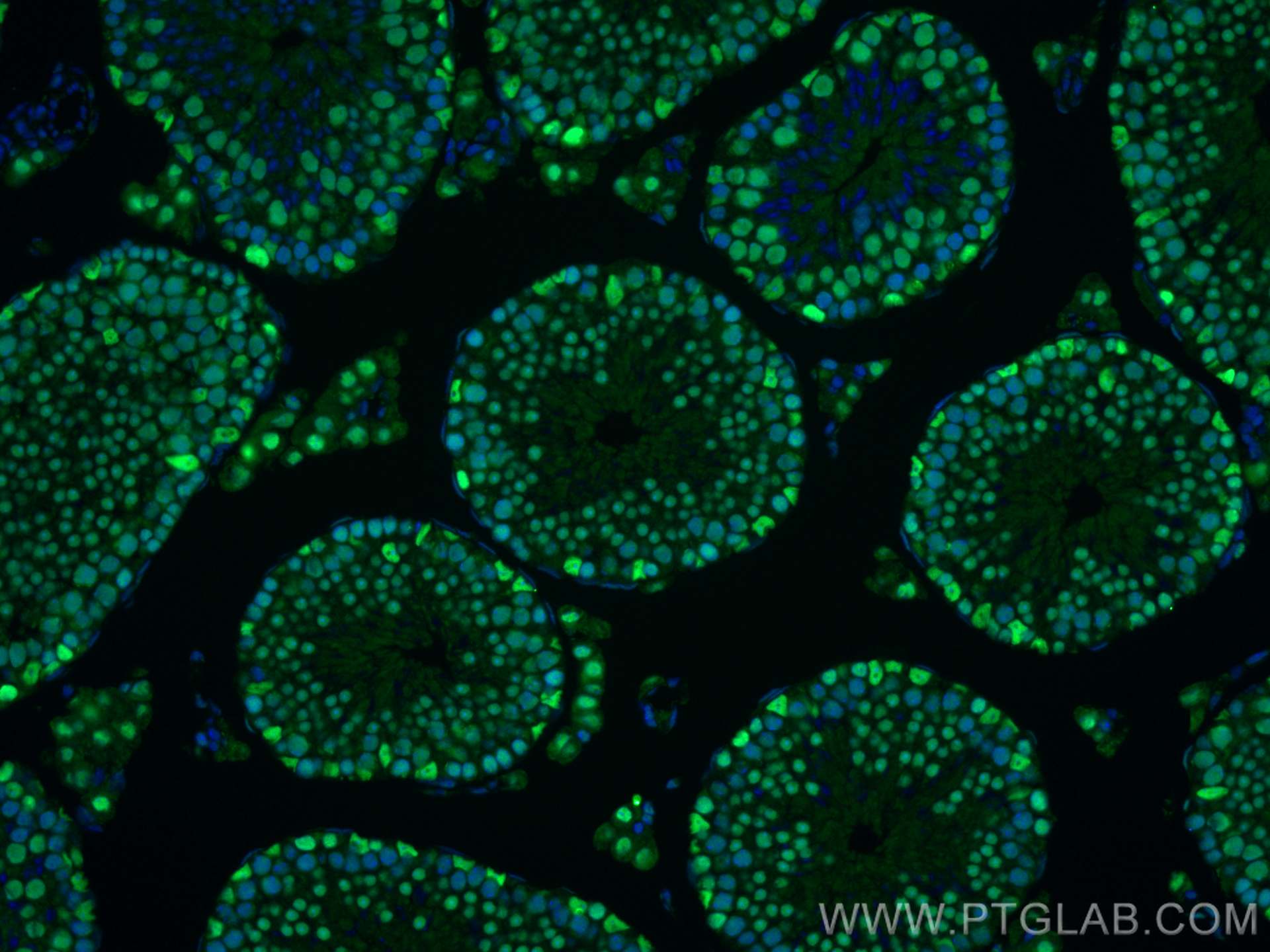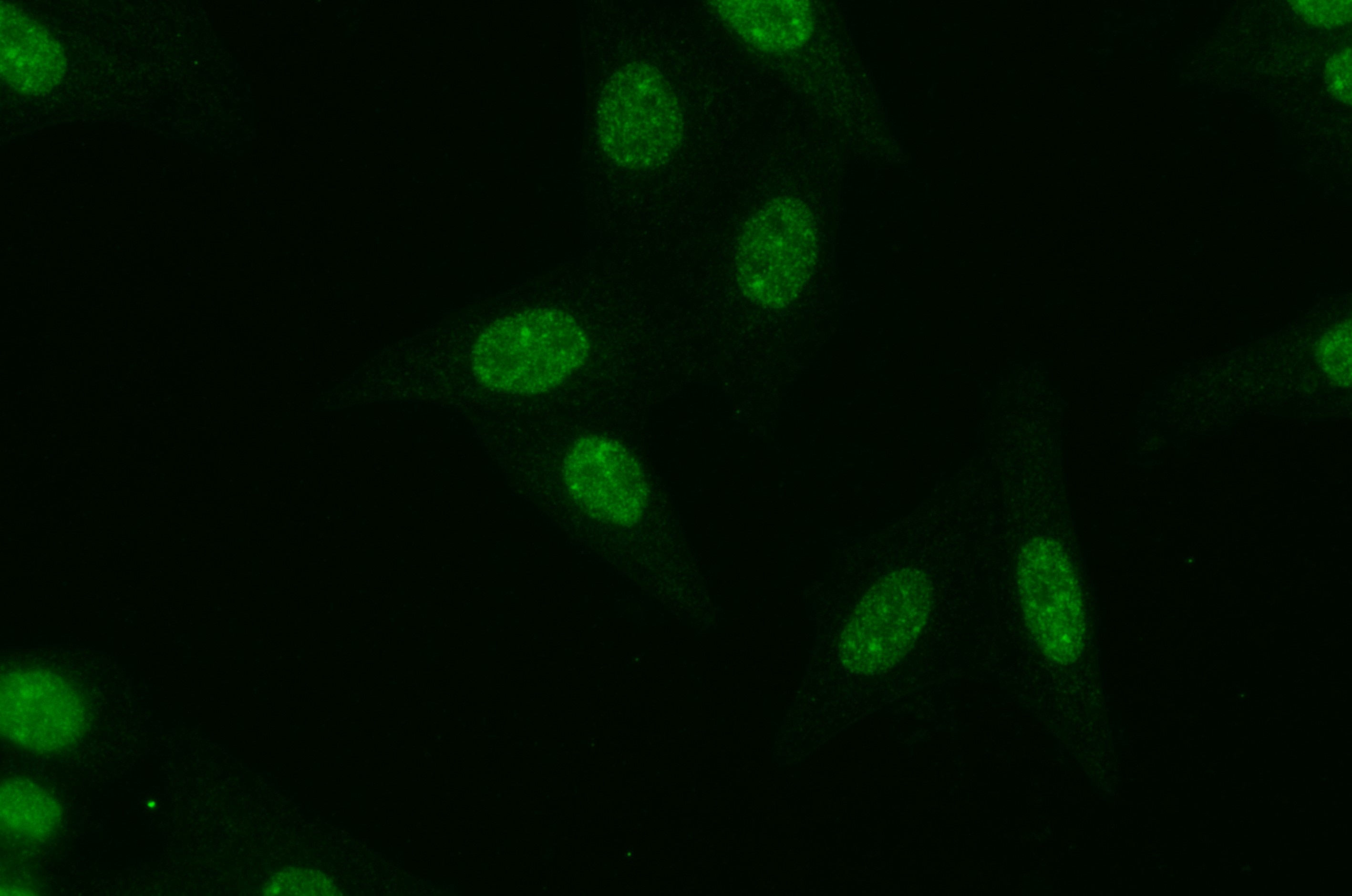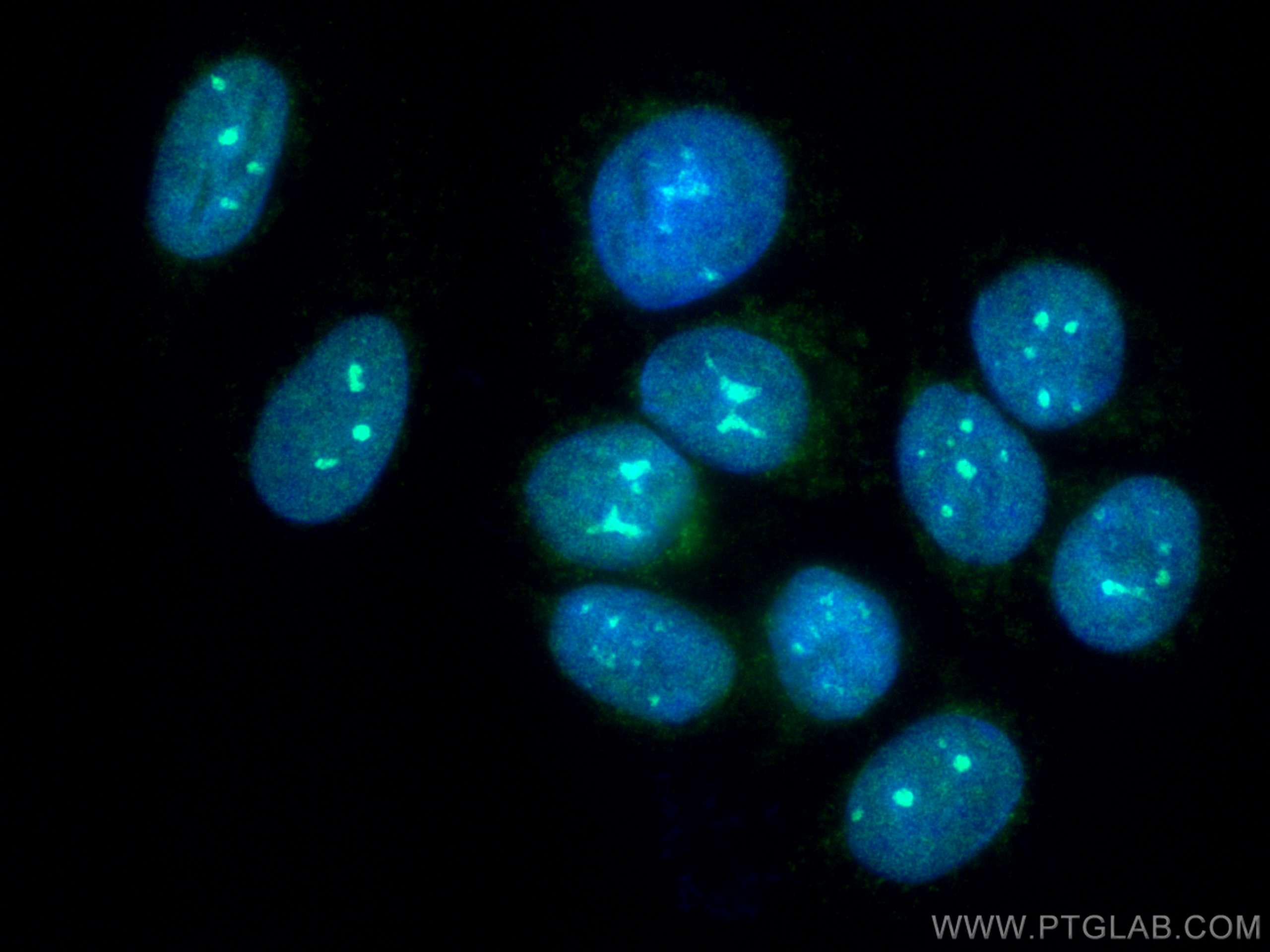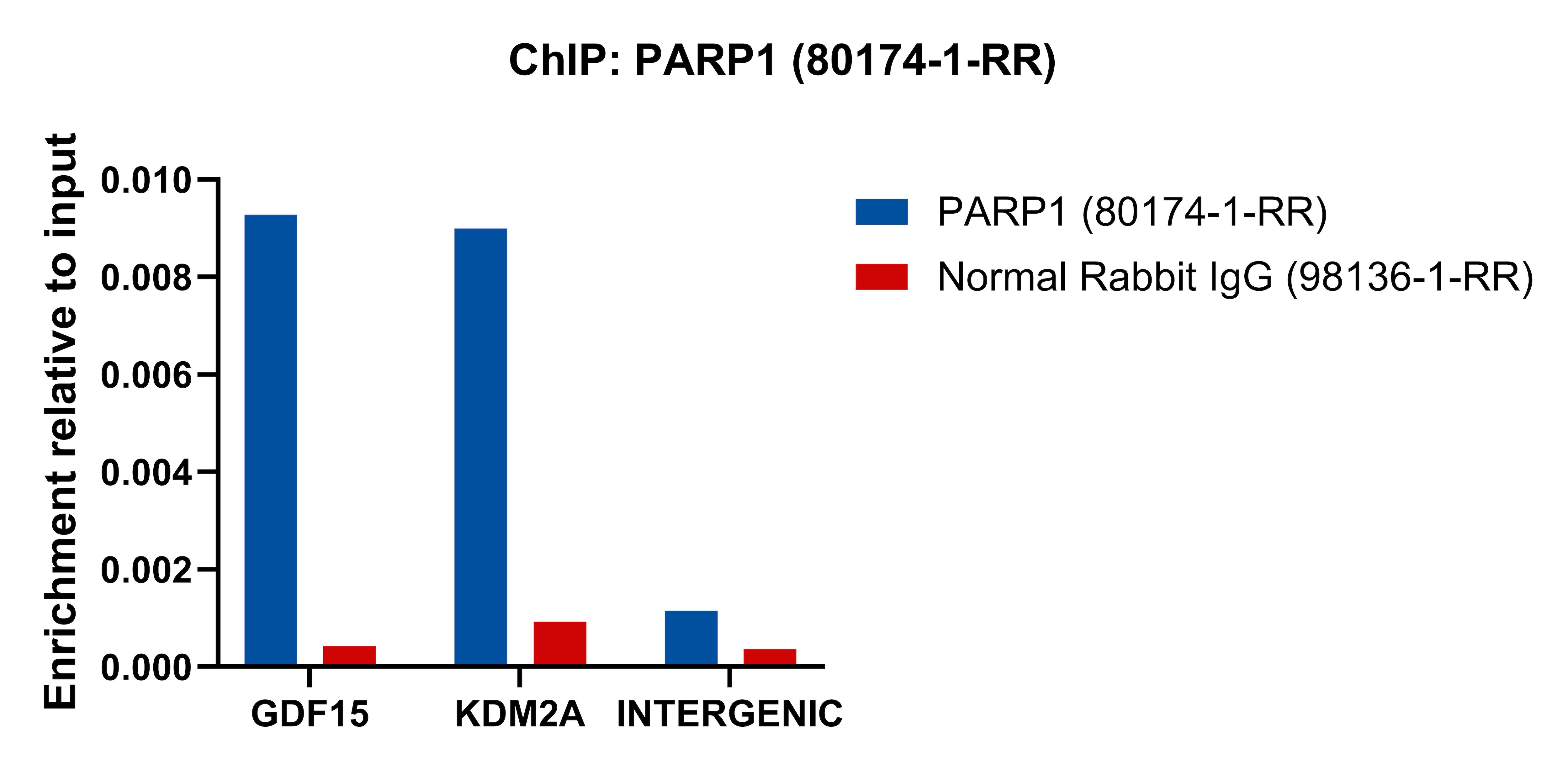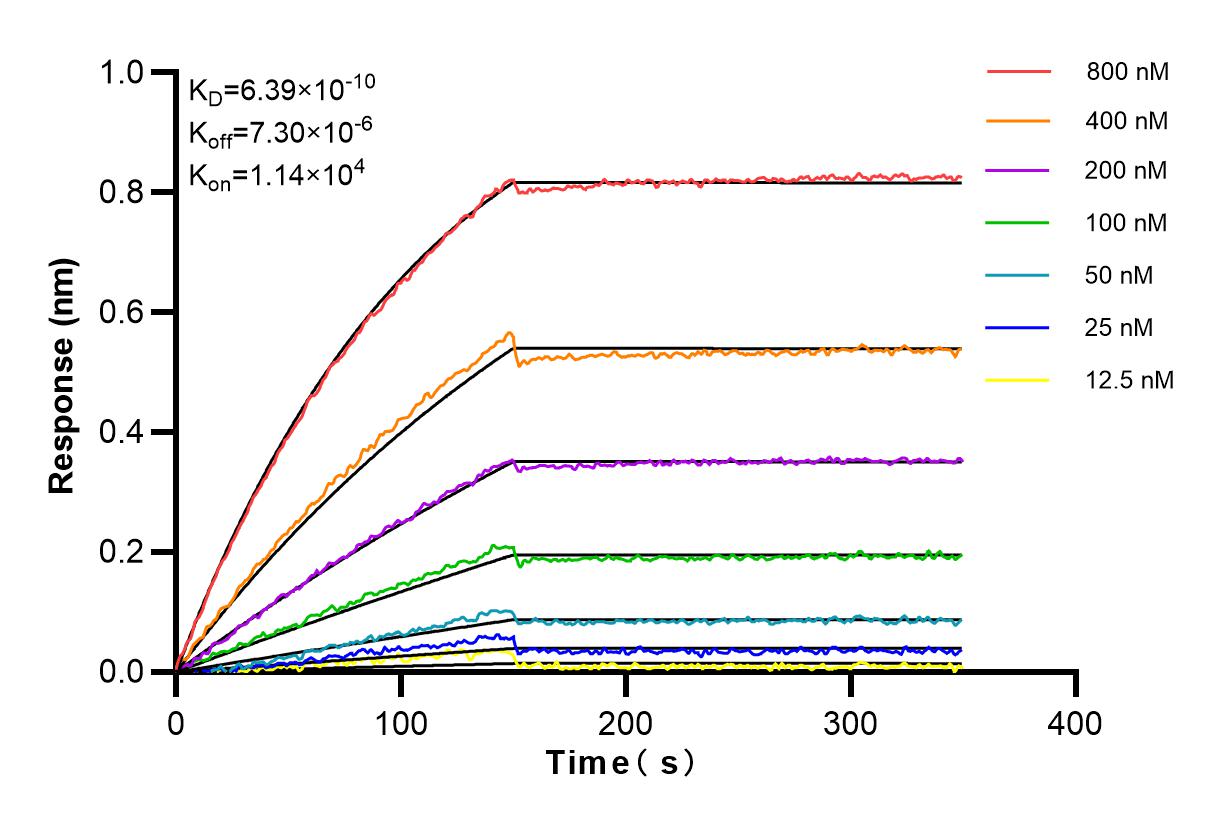- Featured Product
- KD/KO Validated
PARP1 Rekombinanter Antikörper
PARP1 Rekombinant Antikörper für WB, IHC, IF/ICC, IF-P, ELISA, ChIP-qPCR
Wirt / Isotyp
Kaninchen / IgG
Getestete Reaktivität
human, Maus, Ratte
Anwendung
WB, IHC, IF/ICC, IF-P, ELISA, ChIP-qPCR
Konjugation
Unkonjugiert
CloneNo.
3N19
Kat-Nr. : 80174-1-RR
Synonyme
Geprüfte Anwendungen
| Erfolgreiche Detektion in WB | Jurkat-Zellen, HEK-293-Zellen, HeLa-Zellen, HepG2-Zellen, RAW264.7-Zellen, ROS1728-Zellen |
| Erfolgreiche Detektion in IHC | humanes Leberkarzinomgewebe, Maushodengewebe Hinweis: Antigendemaskierung mit TE-Puffer pH 9,0 empfohlen. (*) Wahlweise kann die Antigendemaskierung auch mit Citratpuffer pH 6,0 erfolgen. |
| Erfolgreiche Detektion in IF-P | Maushodengewebe |
| Erfolgreiche Detektion in IF/ICC | HepG2-Zellen, MCF-7-Zellen |
| Erfolgreiche Detektion in ChIP-qPCR | HeLa-Zellen |
Empfohlene Verdünnung
| Anwendung | Verdünnung |
|---|---|
| Western Blot (WB) | WB : 1:5000-1:20000 |
| Immunhistochemie (IHC) | IHC : 1:50-1:500 |
| Immunfluoreszenz (IF)-P | IF-P : 1:50-1:500 |
| Immunfluoreszenz (IF)/ICC | IF/ICC : 1:50-1:500 |
| CHImmunpräzipitation (IP)-QPCR | CHIP-QPCR : 1:10-1:100 |
| It is recommended that this reagent should be titrated in each testing system to obtain optimal results. | |
| Sample-dependent, check data in validation data gallery | |
Veröffentlichte Anwendungen
| WB | See 6 publications below |
| IHC | See 1 publications below |
Produktinformation
80174-1-RR bindet in WB, IHC, IF/ICC, IF-P, ELISA, ChIP-qPCR PARP1 und zeigt Reaktivität mit human, Maus, Ratten
| Getestete Reaktivität | human, Maus, Ratte |
| In Publikationen genannte Reaktivität | human, Ratte |
| Wirt / Isotyp | Kaninchen / IgG |
| Klonalität | Rekombinant |
| Typ | Antikörper |
| Immunogen | PARP1 fusion protein Ag4193 |
| Vollständiger Name | poly (ADP-ribose) polymerase 1 |
| Berechnetes Molekulargewicht | 1014 aa, 113 kDa |
| Beobachtetes Molekulargewicht | 113-116, 89 kDa |
| GenBank-Zugangsnummer | BC037545 |
| Gene symbol | PARP1 |
| Gene ID (NCBI) | 142 |
| Konjugation | Unkonjugiert |
| Form | Liquid |
| Reinigungsmethode | Protein-A-Reinigung |
| Lagerungspuffer | PBS with 0.02% sodium azide and 50% glycerol |
| Lagerungsbedingungen | Bei -20°C lagern. Nach dem Versand ein Jahr lang stabil Aliquotieren ist bei -20oC Lagerung nicht notwendig. 20ul Größen enthalten 0,1% BSA. |
Hintergrundinformationen
PARP1 (poly(ADP-ribose) polymerase 1) is a nuclear enzyme catalyzing the poly(ADP-ribosyl)ation of many key proteins in vivo. The normal function of PARP1 is the routine repair of DNA damage. Activated by DNA strand breaks, the PARP1 is cleaved into an 85 to 89-kDa COOH-terminal fragment and a 24-kDa NH2-terminal peptide by caspases during the apoptotic process. The appearance of PARP fragments is commonly considered as an important biomarker of apoptosis. In addition to caspases, other proteases like calpains, cathepsins, granzymes and matrix metalloproteinases (MMPs) have also been reported to cleave PARP1 and gave rise to fragments ranging from 42-89-kDa. This antibody was generated against the C-terminal region of human PARP1 and it recognizes the full-length as well as the cleavage of the PARP1.
Protokolle
| PRODUKTSPEZIFISCHE PROTOKOLLE | |
|---|---|
| WB protocol for PARP1 antibody 80174-1-RR | Protokoll herunterladen |
| IHC protocol for PARP1 antibody 80174-1-RR | Protokoll herunterladenl |
| IF protocol for PARP1 antibody 80174-1-RR | Protokoll herunterladen |
| STANDARD-PROTOKOLLE | |
|---|---|
| Klicken Sie hier, um unsere Standardprotokolle anzuzeigen |
Publikationen
| Species | Application | Title |
|---|---|---|
J Hazard Mater Exposure to 6PPD-Q induces dysfunctions of ovarian granulosa cells: Its potential role in PCOS | ||
Int J Biol Macromol Rosa rugosa polysaccharide induces autophagy-mediated apoptosis in human cervical cancer cells via the PI3K/AKT/mTOR pathway. | ||
Asian J Androl Safety of low-intensity extracorporeal shock wave therapy in prostate disorders: in vitro and in vivo evidence | ||
Cancer Biomark MKRN1/2 serve as tumor suppressors in renal clear cell carcinoma by regulating the expression of p53 | ||
PLoS One St-N, a novel alkaline derivative of stevioside, reverses docetaxel resistance by targeting lysosomes in vitro and in vivo | ||
J Biol Chem Duplexed CeTEAM drug biosensors reveal determinants of PARP inhibitor selectivity in cells |
